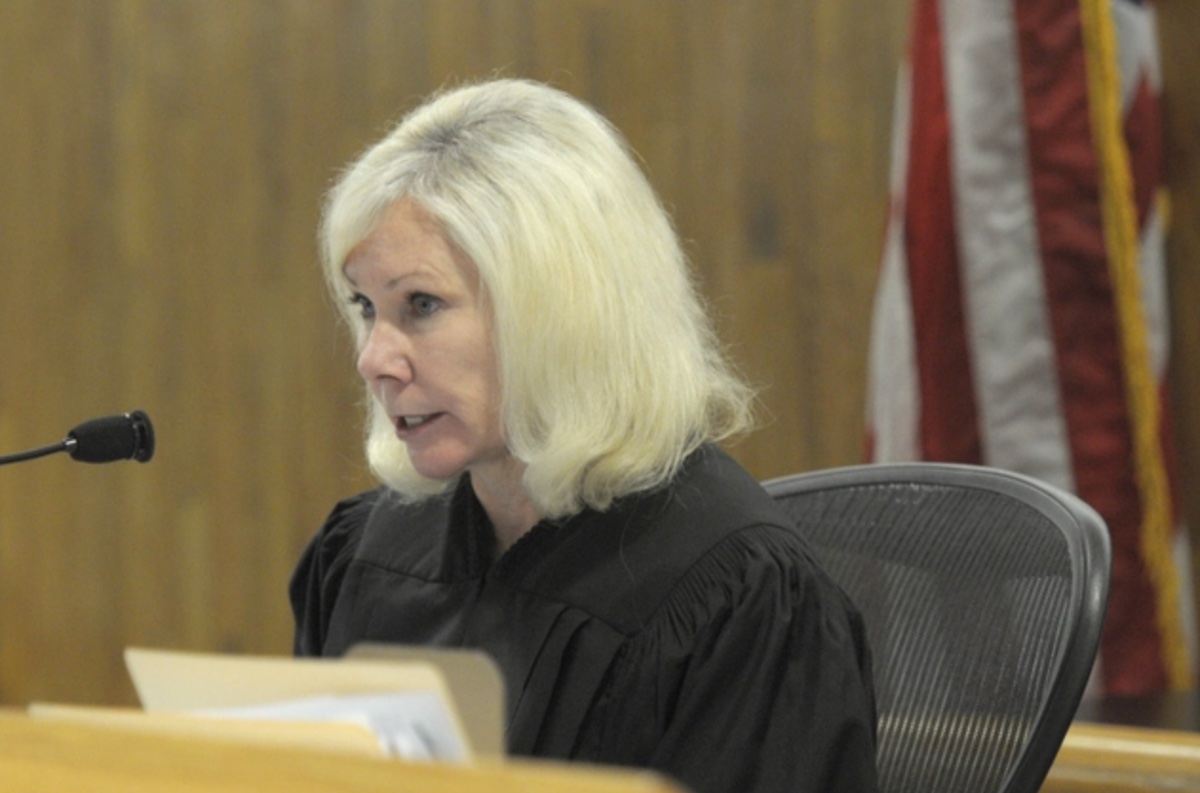AMR Wins Big in Showdown with Santa Barbara County Fire
Judge Rules in Favor of American Medical Response in Its Ambulance Service Lawsuit Against County

In a punishing legal opinion — both in terms of length and detail — Judge Donna Geck ruled that American Medical Response (AMR) ambulances will continue to provide emergency medical response services throughout Santa Barbara County at least until July 16, expressing undisguised skepticism throughout her 33-page opinion at the procedural gyrations undertaken by the County Board of Supervisors to award the lucrative ambulance contract to the County Fire Department instead.
Absent Geck’s ruling to approve the temporary injunction, County Fire would have taken over the county’s ambulance service contract as of March 1. As part of her ruling, Geck ordered AMR — which has enjoyed a near total countywide monopoly for more than 41 years — to keep on providing that service at least until July, at which point, a proper trial can be conducted, and the underlying issues hashed out. (That process, it should be noted, could take as long as five years.)
Geck’s order qualifies as a judicially ordered “time-out” in a years-long campaign launched by fire chiefs throughout the county to take over the ambulance contract. Because they — unlike AMR — are not a private corporation beholden to stockholders, they have argued, they can field more ambulances at any given time and deliver quicker response times for less money. What AMR transfers back to corporate headquarters by way of profits, they argued, can be plowed back into the community to underwrite such programs as “co-response units” in which public safety personnel team up with mental-health professionals to alleviate the stress and strain imposed on law enforcement.
Sadly, for County Fire Chief Mark Hartwig, the fire chiefs who support him, and the four county supervisors who supported them all, none of that was considered by the special panel empowered to review the competing bids submitted by AMR and County Fire. In fact, AMR scored 300 points higher than County Fire. County Fire appealed not once but twice and lost both times.
The supervisors responded by changing the bidding process to circumvent state laws that apply to exclusive ambulance contracts; they declared the contracts to be “non-exclusive” and enacted an ordinance that enabled them to award multiple contracts based on the “community benefits” promised by the provider. Judge Geck found the verbiage surrounding those benefits to be so amorphous as to be meaningless and said so several times.
She also noted that at the end of the day, County Fire ended up with the sole contract. As an exclusive contract awardee, she argued, the state laws — passed in 1980 and 1984 — designed to protect local communities from the downside of market monopoly power should have been observed. That law requires all exclusive ambulance contracts to be reviewed by the local Emergency Services Administration; in this case, Geck concluded, it was not.
State Attorney General Rob Bonta had weighed into the case as well, expressing serious concern in a friend-of-the-court brief that key state safeguards had been bypassed. This was the first time, his brief noted, that such an approach had been deployed. Should it succeed in Santa Barbara, his office made clear, it could establish a precedent. In that regard, Bonta is not wrong; statewide and nationally, there’s growing interest by local fire agencies to provide ambulance service. All eyes are, in fact, on Santa Barbara.
Premier Events
Sat, Nov 02
11:00 AM
Santa Barbara
Mesa Artist Studio Tour
Sun, Nov 03
11:00 AM
Santa Barbara
Mesa Artist Studio Tour
Thu, Oct 31
3:00 PM
Goleta
The Towbes Group Presents: Spooktacular
Thu, Oct 31
5:00 PM
Montecito
A Hauntingly Elegant Halloween Evening at San Ysidro
Thu, Oct 31
7:00 PM
Santa Barbara
Carr Winery Presents: Halloween Night
Thu, Oct 31
7:00 PM
Santa Barbara
Santa Barbara Halloween Bar Crawl
Fri, Nov 01
5:00 PM
Santa Barbara
Chaucer’s Books 50th Birthday Bash
Fri, Nov 01
6:00 PM
Santa Barbara
Friendship Center’s 12th Annual Wine Down
Fri, Nov 01
8:00 PM
Santa Ynez
Chumash Casino Resort Presents En Vogue
Sat, Nov 02
9:30 AM
SANTA BARBARA
The Santa Bárbara Mission Archive-Library (SBMAL) Open House: November
Sat, Nov 02
11:00 AM
Santa Barbara
Mesa Artist Studio Tour
Sat, Nov 02
1:00 PM
Santa Barbara
Chicano Culture de S.B. Annual S.B. Mural Bike Ride
Sat, Nov 02 11:00 AM
Santa Barbara
Mesa Artist Studio Tour
Sun, Nov 03 11:00 AM
Santa Barbara
Mesa Artist Studio Tour
Thu, Oct 31 3:00 PM
Goleta
The Towbes Group Presents: Spooktacular
Thu, Oct 31 5:00 PM
Montecito
A Hauntingly Elegant Halloween Evening at San Ysidro
Thu, Oct 31 7:00 PM
Santa Barbara
Carr Winery Presents: Halloween Night
Thu, Oct 31 7:00 PM
Santa Barbara
Santa Barbara Halloween Bar Crawl
Fri, Nov 01 5:00 PM
Santa Barbara
Chaucer’s Books 50th Birthday Bash
Fri, Nov 01 6:00 PM
Santa Barbara
Friendship Center’s 12th Annual Wine Down
Fri, Nov 01 8:00 PM
Santa Ynez
Chumash Casino Resort Presents En Vogue
Sat, Nov 02 9:30 AM
SANTA BARBARA
The Santa Bárbara Mission Archive-Library (SBMAL) Open House: November
Sat, Nov 02 11:00 AM
Santa Barbara
Mesa Artist Studio Tour
Sat, Nov 02 1:00 PM
Santa Barbara




















